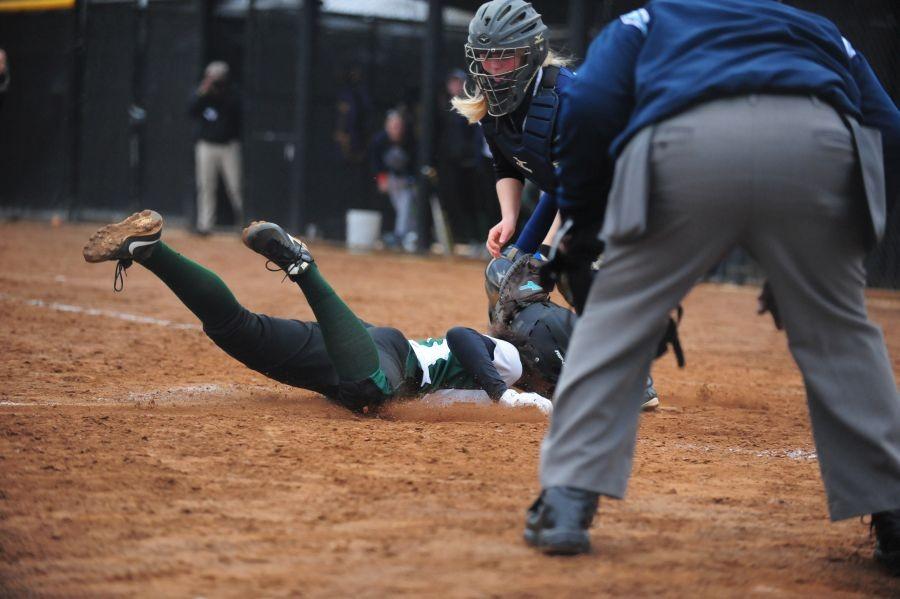Concussions: Keep Your Head in the Game
Junior RaShawn Parent is safe on base, but how about a concussion?
One of the worst injuries anyone can get is a concussion. If you are an athlete, and suffer from a concussion, it can be fatal. If the sport you play is considered a contact sport, like football, you are more likely to receive one while playing.
Repeated concussions have shown to increase the risk in later life for other problems like dementia, Parkinson’s disease, and depression. All these problems can be fixed if every sport increases player safety; technology is coming up with innovations to reduce the impact on players after taking multiple hits to the head.
For anyone who plays sports, here are some of the best way to prevent concussions:
- Wear the appropriate equipment for your sport and wear it properly.
- Examine the playing field for uneven areas or holes.
- Make sure that end posts are padded sufficiently.
- Practice good sportsmanship.
- Don’t intentionally go after an opposing player.
- Make smart decisions on the field at all times.
People who have had a concussion are more likely to have another happen to them, especially if the new injury occurs before symptoms from the previous concussion have completely resolved. Sophomore Bruno Araujo said, “I received a concussion about 2 years ago playing football and it kept me out of playing for a very long time so I could properly heal.”
According to the Massachusetts General Hospital Research Facility, “there is considerable concern regarding the long-term effects of this injury, especially in children and adolescents who suffer repetitive injuries. Whether or not there is a long-term effect of multiple concussions in high school athletes is not well understood. There are conflicting results in the medical and scientific literature.” This is very important regarding concussions and player safety which should be every athlete’s number one concern.
As for soccer, soccer balls can be kicked to speeds as high as 70 miles per hour. The force itself is way below the force that is thought to be necessary to cause a concussion. Sophomore Tommy Setchell, who is a defender on the Wakefield soccer team, suffered a concussion last year and said, “it was a very hard injury to come back from and it definitely had its affects on me.”
Overall playing sports can be thrilling, but also can cause great risk, so stay safe on the field at all times.



